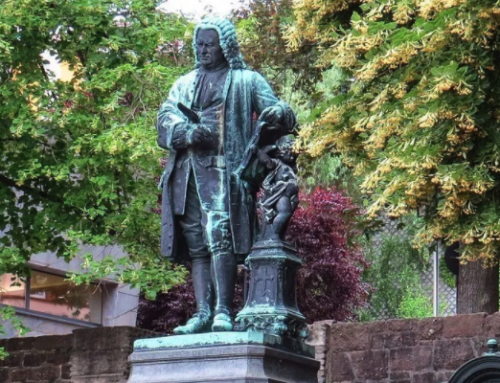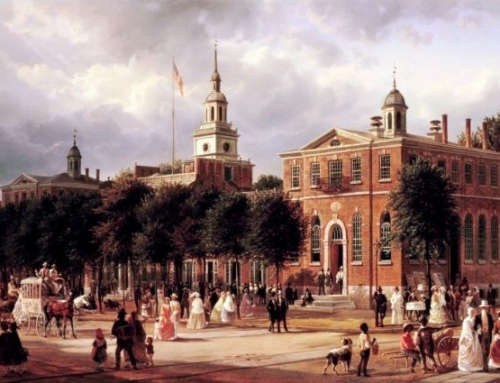The Odyssey, by Homer. Translated by Joe Sachs, Paul Dry Books, 2014
An excerpt from the Introduction
 I have never met a translation of the Odyssey I didn’t like. There are verse translations that march in boots (Richmond Lattimore) or amble along in sensible shoes (Albert Cook), or glide (Ennis Rees) or dance (Allen Mandelbaum) or dance a jig (Robert Fitzgerald); and there are prose translations that speak in archaisms (A.T. Murray) or in wild flights of excess (R.L. Eickhoff) or in a style that manages to be rapid, direct, and formal all at once (Lawrence of Arabia, under the pen name T.E. Shaw). The poem appears in as many guises as Odysseus himself. Somewhere among the fifty-six complete versions published in English from 1615 to 2008, there may be one that loses all the life and feel of the original, but I haven’t come across it yet. Homer’s talent is surprisingly hard to kill. I first learned that when I did a homework assignment, about half a century ago, by looking up all the words in a passage and writing down, one by one, a meaning for each that seemed possible; when I read through the mishmash on my page, I was astonished to find beauty in it. I hadn’t put it there. But I am not just giving the professionals faint praise for being no worse at their task than a blundering sophomore. There is so much power and grace in Homer’s poetry that a reader responsive to a few partial strands of it can find in them a wholly satisfying experience, and every translator whose work I have read has detected and magnified something in the original that I had not found by other means.
I have never met a translation of the Odyssey I didn’t like. There are verse translations that march in boots (Richmond Lattimore) or amble along in sensible shoes (Albert Cook), or glide (Ennis Rees) or dance (Allen Mandelbaum) or dance a jig (Robert Fitzgerald); and there are prose translations that speak in archaisms (A.T. Murray) or in wild flights of excess (R.L. Eickhoff) or in a style that manages to be rapid, direct, and formal all at once (Lawrence of Arabia, under the pen name T.E. Shaw). The poem appears in as many guises as Odysseus himself. Somewhere among the fifty-six complete versions published in English from 1615 to 2008, there may be one that loses all the life and feel of the original, but I haven’t come across it yet. Homer’s talent is surprisingly hard to kill. I first learned that when I did a homework assignment, about half a century ago, by looking up all the words in a passage and writing down, one by one, a meaning for each that seemed possible; when I read through the mishmash on my page, I was astonished to find beauty in it. I hadn’t put it there. But I am not just giving the professionals faint praise for being no worse at their task than a blundering sophomore. There is so much power and grace in Homer’s poetry that a reader responsive to a few partial strands of it can find in them a wholly satisfying experience, and every translator whose work I have read has detected and magnified something in the original that I had not found by other means.
The Odyssey, for me, today, is a complex whole seen in multiple refractions through lexicons and reference grammars, books and articles, friends and colleagues and students, the several English translations I’ve read in full, and an assortment of others I’ve dipped into. All those partial views do not slot together neatly like pieces of a jigsaw puzzle; they are more like transparent overlays that add layers of depth. Depths can, of course, become murky, and on the scholarly side they are bound to follow the course once described by J.V. Cunningham: Each “gloss demands a gloss annexed, till busy hands blot out the text.” But among the translators there is no refutation or progress. Any newly encountered translation of a poem is an opportunity to participate in a fresh reading through a new pair of eyes, and while those readings cannot all be taken in at one view, each one adds something to the sight that occupies the foreground at any moment. It is not because a new translation is needed that I now offer this one, but because every new translation is a contribution that enhances the self-revelation of a poem of boundless variety.
Some translations deliberately restrict the language of the poem to one end of one or another spectrum of choices. A.T. Murray’s archaism, mentioned above, is of the “yea verily methinks” sort, and quickly becomes familiar enough to lose its feeling of oddity. But there is also a translation of a hundred or so lines of Book XI at the beginning of Ezra Pound’s Cantos, which contains a couple of English words so thoroughly obsolete as to be impenetrable, and this may faithfully represent the effect in ancient times of Homer’s own use of a vocabulary already becoming inaccessible around its edges. But Stanley Lombardo’s wholly contemporary approach communicates with a vividness that is faithful to another side of Homer’s language, though one can easily imagine how a translator without his poetic tact could take jarring missteps into slang. Most versions dwell comfortably in a middle ground in which the opposing virtues can be given their due. But there is also diction that ranges not from old to new but from high to low. Even the stately lines of Lattimore could offend the ears of an old teacher of mine, with some of the language that comes out of Zeus’s mouth. There is something elevated about Homer’s gods and heroes, but something earthy in every one of them as well, and here too translators are more likely to follow their own judgment up and down the scale as occasions demand than to limit themselves to one region of it.
Opening Twenty-one lines of The Odyssey, translated by Joe Sachs
Book I
A man, resourceful but forced into so many wanderings from the time
he sacked the sacred stronghold of Troy—sing me his story, Muse.
There were many people whose towns he saw, whose minds he took
the measure of, and many miseries he suffered at sea, sick at heart,
while trying to earn his own life and a way home for his shipmates.
But there was no saving those shipmates, determined as he was;
they were undone by their own reckless acts. With no more sense
than infants they fell on the cattle of the sun god Hyperion and
ate them. The god robbed them of the day—their day of homecoming.
Start anywhere, goddess, daughter of Zeus, and tell the story again for us.
When all the rest who had escaped utter destruction
were home, survivors of the war and also of the sea,
he alone was still yearning for his homecoming and his wife,
kept in the cavernous lair of the queenly nymph Calypso,
a goddess among goddesses, who wanted him for a husband.
Time sailed its monotonous circuit, but when the year came round
in which the gods had spun his destiny to return to Ithaca,
he was not home free even there; his struggles continued,
even among his own loved ones. All the gods took pity on him,
apart from Poseidon; he went on with his raging fury
at godlike Odysseus to the moment of his arrival in his own land.
An excerpt from the Afterword
The first literary critic on record with a review of any portion of the Odyssey is Alcinous, king of the Phaeacians, and the assessment he offers of Odysseus’s art (Book XI, lines 367–374) has been echoed ever since by most of those who have commented on Homer’s own: the story is well shaped, displays and invites thinking, and grabs the imagination and doesn’t let go. But Alcinous offers not only his opinion, but also his gratitude to the storyteller, by choosing to make himself and his people participants in the continuation of the story. With their help, Odysseus finally achieves the return home he has been seeking for ten years; without it, we have been informed by Zeus in Book V, his goal would have been unattainable. But his success comes at great cost to the Phaeacians—more than fifty of their men dead, the end of the activity that has been the source of their greatest pride, and the threat of losing their whole seafaring way of life. All this, Odysseus’s gain and the Phaecians’ losses, comes to fulfillment at the center of the Odyssey, where one man’s ten years of frustration are transmuted into the shapeliness of a storyand the story-book complacency of another people’s existence is relinquished in favor of the risks and uncertainty that ordinarily accompany mortal life.
This central event of the Odyssey may seem easy to understand. Odysseus has once more gotten himself out of trouble by landing others in it. He is, after all, credited in the second line of the poem with the destruction of Troy. His cunning stratagem tricked the Trojans into dragging a wooden horse filled with their mortal enemies inside the walls of their city. When the world war ended and he departed for home, he had six hundred or so fellow warriors as shipmates, but when he washed up on the Phaeacians’ island ten years later, every one of those companions was long dead. Odysseus’s career seems littered with the corpses of those who’ve trusted him, and it may appear that he rounds the turning post for the last stage of his journey exactly the man he’s always been.
But it may be that Alcinous is a step ahead of us rather than a step behind. He’s well aware of the possibility we’ve just considered, and his assessment of the story he is hearing includes a judgment of the man who tells it:
Odysseus, when we look at you, there is nothing that would make us take you for the sort of fraud or cheat the dark earth breeds in such profusion—all those fellows scattered far and wide who make up elaborate lies about things no one could ever test with the evidence of eyesight. (XI, 363–366)
The decision Alcinous makes is not one that he is tricked or manipulated into, but a choice he makes wholeheartedly, with his eyes open. Odysseus has not been pleading for his life but displaying himself worthy of it, and Alcinous tells us that the story itself has earned it for him.
Of the three characteristics of the story that Alcinous singles out for praise—shapeliness, thoughtfulness, and power over the imagination—the third may be most difficult to understand. The word Alcinous uses, theskelos, appears only twice in each of Homer’s epics, and while there is a consensus among scholars that it means “wondrous,” no one seems very clear about how its parts add up to that meaning. The first syllable is equivalent to theos, a god, or divine power, and the rest is from the root of the verbs keleuein and kelesthai, meaning, respectively, to command and to have a compelling force or agency. There are various bits of evidence that help us get hold of the meaning of the compound. It is fairly clear that it is an intensification of another word, thespesios, used more than a dozen times in the Odyssey to mean “divinely uttered” or “infused with a divine sweetness.” The word Alcinous uses attributes a commanding or arresting presence to the divine inspiration or aura the work of art carries, and this lifts its effect above the sweetness the more common word conveys. The only other time theskelos is used in the Odyssey is later in Book XI (610) when Odysseus applies it to the workmanship of a belt the shade of Heracles was wearing in Hades’ realm, to say that he hopes never again to have to look at any artwork with such terrifying power. Alcinous is not saying that a pleasantly entertaining story is worth some gratification in return; what is at stake on each side of the interaction is of a deeper seriousness than that. And this is the case even though the Phaeacians make their part of the exchange in the medium of action while everything Odysseus gives them is in the medium of imagination. When Odysseus hopes never to see the like of Heracles’ belt again, it is not the cunning workmanship of the gold material that he is talking about, but the way it works on his imagination, and when he abruptly breaks off his story in the royal halls of the Phaeacians, we are told (XI, 333–334):
Those were his words, and everyone was left silent and still; all through the shadowy, fire-lit halls they were caught up in the spell.
The moment that passes before any of the listeners can speak is one in which each is absorbed in his or her own imagination, which is the only place the shape of Odysseus’s story and the characteristics of his mind and heart can be viewed, and the word that best captures the state of mind that permits such viewing is wonder.
So one way to describe the turning point of the Odyssey is to say that the Phaeacians restore Odysseus to his life at the risk of their own in exchange for his gift to them of an experience of wonder. This may sound somewhat like the exchange of a cow for a handful of magic beans. On the other hand, various forms of various words for wonder are used frequently throughout the Odyssey, and it would not be far-fetched to find that it is not only a major theme of the poem but also plays a part in the action. It is also true that Aristotle, in the Poetics (1460a 11–18, b 23–26), claims that producing a source of wonder (to thaumaston) is the goal at which all poetry aims, that epic poetry gives the greatest scope for it, and that Homer was exceptionally skilled at bringing it off. And even in the Iliad—which does not convey the same feeling the Odyssey does, that everything in the world may turn out to be bright with something wondrous—references to wonder turn up at certain crucial moments.
The turning point of the Iliad comes when Achilles decides to return to the fighting he has kept out of through the events of eighteen books. When he makes that decision, he has no armor, so his goddess mother asks the craftsman god Hephaestus to make new battle gear for her son. Homer spends more than 120 lines describing the scenes the god will depict on the shield, which seem to combine into a vision of the whole world, but first he has Hephaestus comment on the purpose that his own work of art will be meant to serve (Iliad XVIII, 464–467):
I wish I had the power to hide him far away from dismal death when that grim fate arrives for him, as surely as I can see that he has such splendid armor around him that many another human being will gaze at him in wonder.
It seems to me plausible that the poet Homer, who is traditionally represented as blind, is here using the lame craftsman Hephaestus as a figure for himself, and telling us that the Iliad is his own Shield of Achilles, a work of art meant to transform the short life and grim fate of Achilles into a source of our wonder. One of the things at which Homer leaves us wondering is the power of wonder itself, which comes to the forefront again in the last act of the Iliad, when Achilles and Priam confront one another in Book XXIV. It is a source of wonder to the Greek soldiers when Priam arrives alone in the camp of his fiercest enemy, but the potent wonder that is set before us passes back and forth between the two men who have come to occupy the center of their attention, the killer of Priam’s son and the father of the killer of Achilles’ dearest friend. For a moment (lines 629–632), the two men gaze at each other in wonder, as each for once can see the other just for what he is. And for Achilles, who began Book XXIV (lines 3–22) still raging at the corpse of Hector, and whose anger was still barely held in check when he decided to return that corpse for proper burial (559–560, 568–570), this shared moment of wonder is the first and only time since the beginning of the poem that anything has had the power to displace, and not merely redirect, the anger by which he has been possessed.
It should be apparent already that wonder is one of those notions that will spill over, in any language, into a variety of words, and one of those experiences that will show up in a variety of manifestations. Why a complex work of art, the sudden appearance of a man walking voluntarily into danger, and the face of a fellow unhappy human being should all call forth the same response is by no means readily apparent. We might begin to understand it by considering a simpler sort of example than those the Iliad has provided. There are all sorts of occasions when we say something like, “I wonder whether I should turn right or go straight at that intersection.” In such cases, “I wonder” means little more than “I’m unsure,” and this might seem to be so far beneath the intense experiences we’ve begun to consider that it sheds no light on them at all. But it may be that the first requisite for any access to wonder is the recognition that one lacks the resources to comprehend or explain away the thing with which one is now confronted. “I don’t know which way to go” can lead one to remain still, with one’s gaze fixed and one’s mind open to new possibilities. But it can also leave one bereft, at least momentarily, of any further response at all. This is not the full or primary experience that goes by the name of wonder, but the passage to that state may not be capable of being made in any other way. If we think we know the limits of possibility of what can happen in the world, we may have to be astonished, astounded, awestruck, amazed, stunned, dumbfounded, thunderstruck, or knocked for a loop in order to have a chance to see things as they are.
These excerpts appear here with the gracious permission of the publisher. Paul Dry Books is one of our favorite publishers and their online catalog is well worth review. We highly recommend them.
The Imaginative Conservative applies the principle of appreciation to the discussion of culture and politics—we approach dialogue with magnanimity rather than with mere civility. Will you help us remain a refreshing oasis in the increasingly contentious arena of modern discourse? Please consider donating now.
The featured image is “Ulysses’ Revenge on Penelope’s Suitors” (1814) by Christoffer Wilhelm Eckersberg (1783–1853) and is in the public domain, courtesy of Wikimedia Commons.







How did I ever make it to age 62 without ever having read The Odyssey? In school, I read about The Odyssey only, but never the actual work. In my ignorance I was sure I knew all about it, and this beautiful work was completely lost to me — until now. Thank you for this excellent post.
C. S. Lewis, great literary critic that he was, liked William Morris’s translation of the Odyssey best of all he had read. But it has more of an ancient Germanic feel to it than Greek, in my humble opinion.